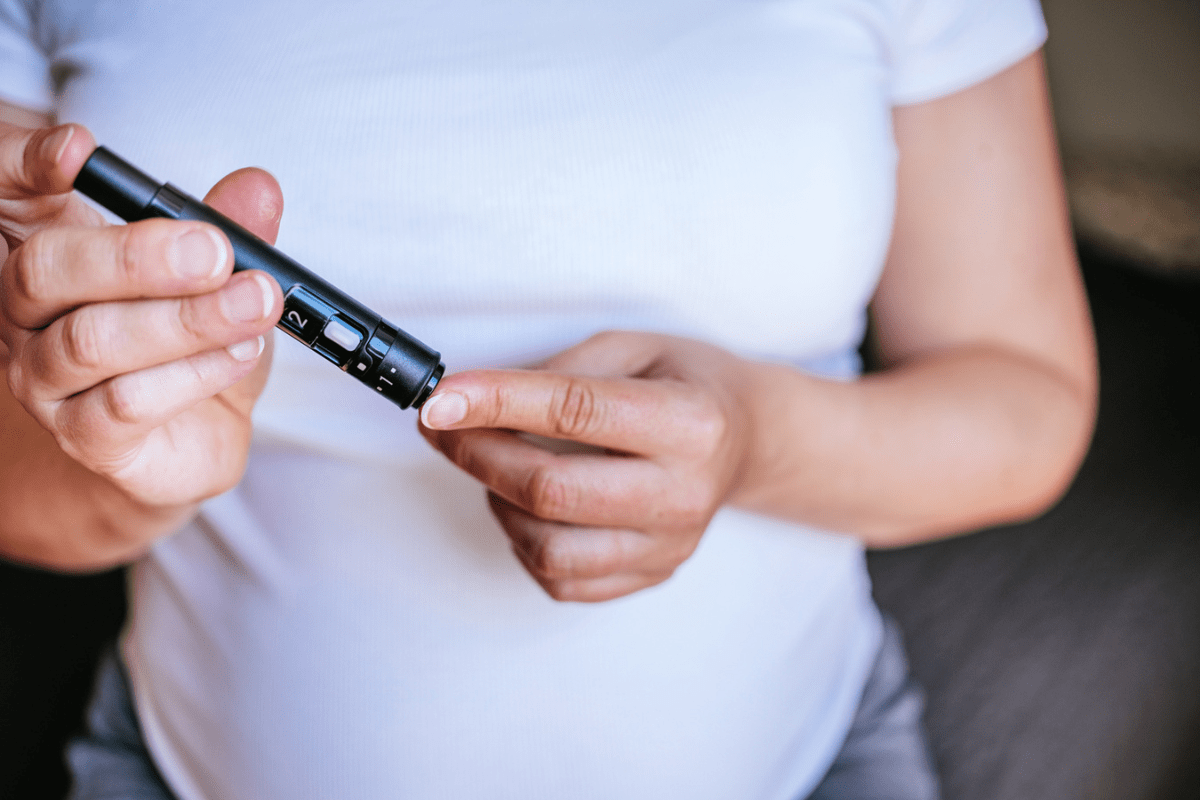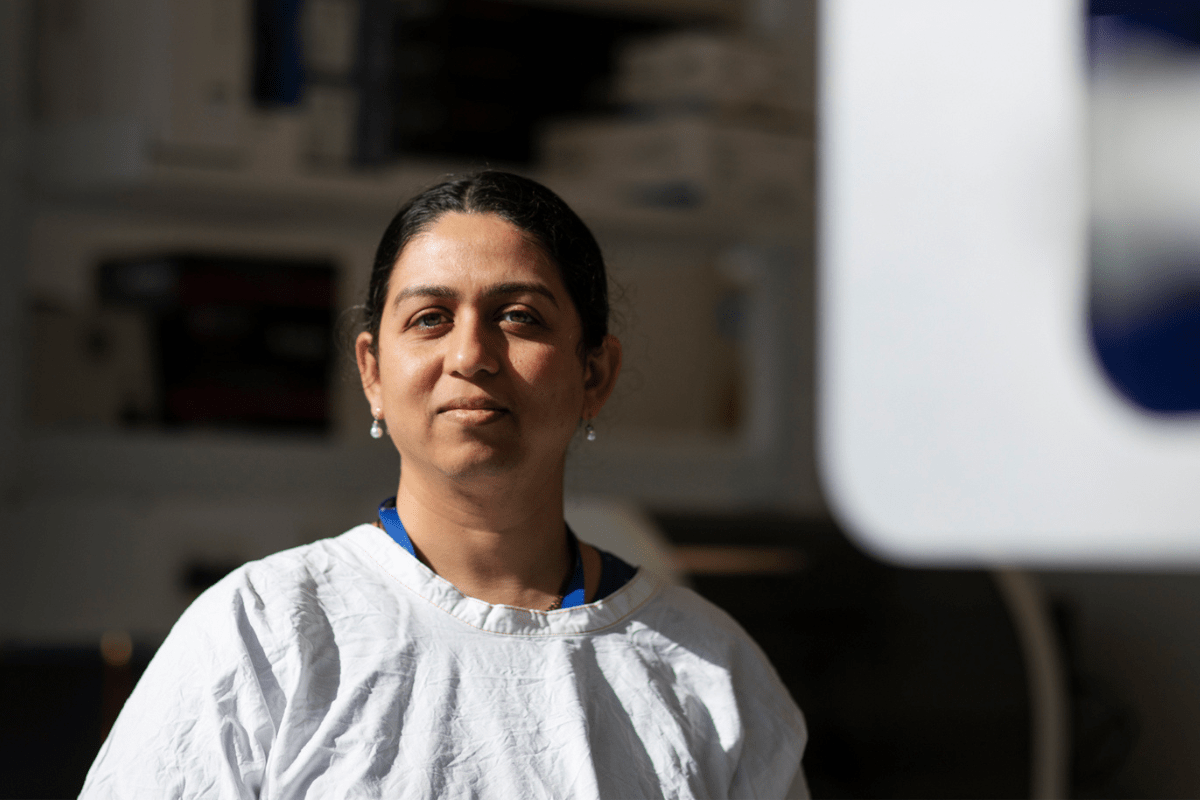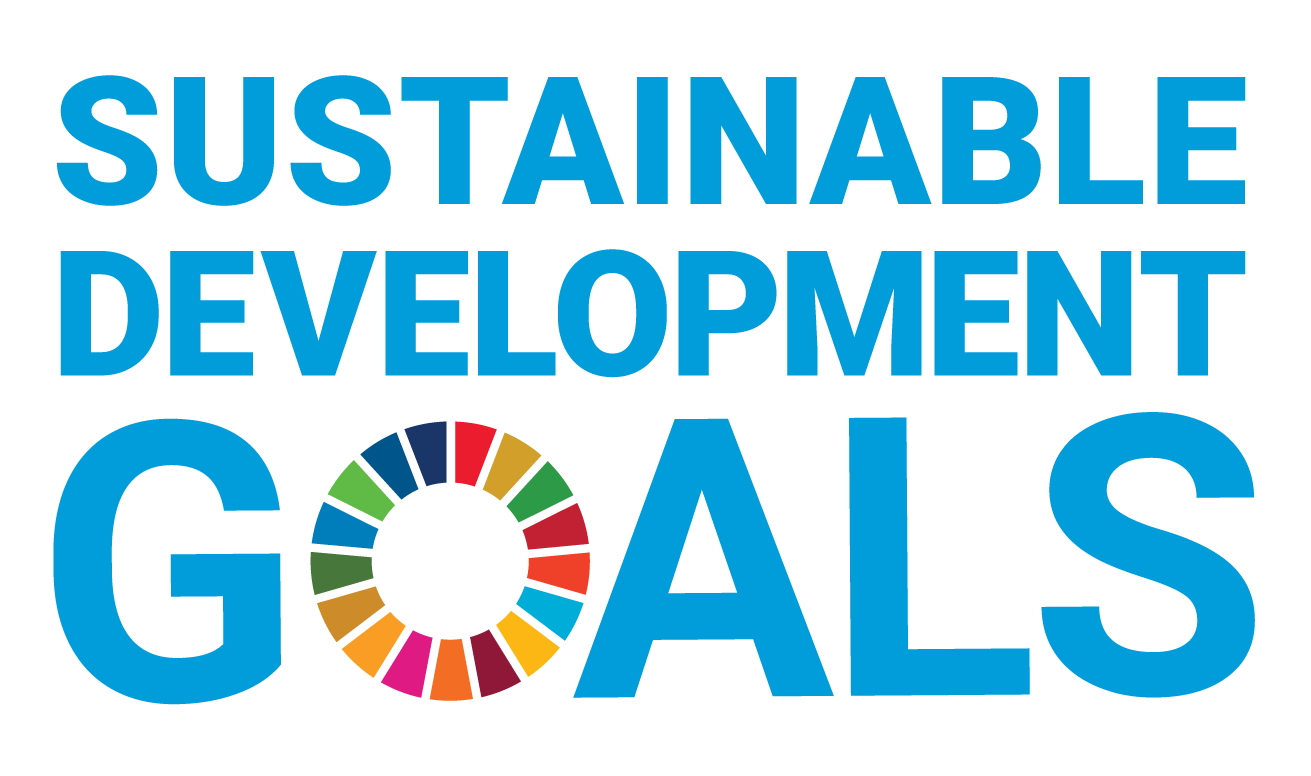You can search for courses, events, people, and anything else.
Image: The Islets of Langerhans (pictured) are areas in the pancreas responsible for producing insulin.
Mugdha Joglekar, who researches diabetes, never expected to be at the receiving end of the disease she studies. However, similar to about 10-20% of pregnant women, Joglekar developed gestational diabetes.
Gestational diabetes usually goes into remission at the end of pregnancy, with high blood glucose levels associated with the condition returning to normal levels. For many women, however, the recovery is only temporary.
"A meta-analysis from The BMJ indicated that women with gestational diabetes have a nearly 10-fold higher risk of developing type 2 diabetes in later life than women without gestational diabetes," Joglekar says. Type 2 diabetes is a condition where the pancreas eventually fails to produce the desired levels of insulin due to increasing resistance to insulin.
"Really concerning is the high risk of type 2 diabetes onset just 8 to 10 years after pregnancy, or even before," she adds. This is much younger than the average age for developing the condition, which is around 55.
But Joglekar’s recent research suggests this transition may be preventable. She and her collaborators have identified a specific biomarker, present in the blood of women shortly after they give birth, that could be used to identify which women were more likely to go on to develop type 2 diabetes.
The discovery could lead to the development of a test for new mothers. "These women could then start lifestyle interventions, such as diet and exercise, to potentially avoid type 2 diabetes later in life," Joglekar explains.
DIVERGENT PATHWAYS
For Joglekar, working in medicine is ingrained. "My grandfather was a doctor and established a hospital at Shirwal in rural western India," she says. Both Joglekar’s parents took this further and she states "now, my brother and his wife work there as the third generation of doctors and surgeons continuing the legacy."
Her childhood spent in and around the hospital had a lasting effect. "I still clearly remember when I was six and a patient was brought in after an accident in which he lost a hand," Joglekar recalls. "I remember thinking, if lizards can regenerate their tails, why can’t we regenerate our body parts?"
She was always intrigued by the what and the why of health. "I wanted to know what goes wrong with people when they get a disease," Joglekar says. Rather than follow family into the clinic, she pursued a path of biomedical research.
Joglekar was initially drawn to study the regenerative potential of stem cells. These versatile cells can replace or rescue damaged cells in many tissues around the body. "During my PhD I worked on converting pancreatic stem cells into insulin-producing cells, which are the cells whose function is lost in diabetes," she says.
The more Joglekar learned about diabetes, however, the more intrigued she became. "The causes of diabetes can be so varied; it’s a really complex disease," she says. Today, her broad-ranging diabetes research spans the causes of the disease, potential prevention, and biomarker-based methods for early detection.
Need to know
- 10-20% of pregnant women develop gestational diabetes.
- They are at higher risk of developing type 2 diabetes earlier than the average age of disease onset.
- Mugdha Joglekar and her team have found a biomarker found in blood shortly after pregnancy that can help identify women at risk.
"A meta-analysis from The BMJ indicated that women with gestational diabetes have a nearly 10-fold higher risk of developing type 2 diabetes in later life than women without gestational diabetes."
BIOMARKER BREAKTHROUGH
Despite the high prevalence of women developing type 2 diabetes after gestational diabetes, little research has focused on this pathway.
Type 2 (as well as type 1) diabetes is a serious condition in which elevated blood glucose levels gradually damage tissues including nerves and blood vessels, with significant health ramifications. Across the general population globally, the average age of type 2 diabetes onset peaks at around 55 years, but among women who suffered from gestational diabetes it’s not uncommon to develop the condition as young as 45 or even earlier.
Not every woman with gestational diabetes is affected. "So, we asked the question: shortly after they deliver their baby, can we identify women that are at higher risk of developing type 2 diabetes in the future?" Joglekar says.
Joglekar and her colleagues collaborated with University of Melbourne clinicians to analyse a set of circulating microRNA biomolecules. Released by almost every cell type around the body, microRNAs can offer a detailed readout of health.
The team used machine learning/AI-based tools to analyse the levels of more than 700 microRNAs in blood samples collected from 103 women 12 weeks after a gestational-diabetes pregnancy. The women had been given a diabetes test every 1-2 years for up to a decade after giving birth. The analyses compared the microRNAs of women who went on to develop type 2 diabetes within this period with those who did not, searching for differences.
"We found one particular microRNA that is very important," Joglekar says. When combined with other known risk factors such as age and body mass index, women with this biomarker had a 90% higher risk of developing type 2 diabetes, the team showed.
Joglekar is now in discussion with researchers in Australia, U.S. and Canada to confirm the result in a larger patient population.
"We are also collaborating with nanotechnology researchers to develop a simple colour-changing test for the target microRNA," she says. If forewarned, these women could be further stratified to a higher risk group, who could then make lifestyle changes to avoid or delay disease onset. "As a person with experience of gestational diabetes, I would have liked to have had such a test," Joglekar notes.
The same test technology could be applied to other microRNA biomarkers — such as biomarkers for type 1 diabetes. Type 1 diabetes, unlike type 2, is linked to an autoimmune reaction in which the body’s immune system attacks its own insulin-producing cells in the pancreas. Joglekar and her team are collaborating with Anandwardhan Hardikar, professor of physiology at Western, and his colleagues to validate biomarkers for type 1 diabetes.
"There are now therapies which can delay the onset of type 1 diabetes by a few years," Joglekar says. "If we could identify the children at risk, and then delay the disease, we’d not only give them a better quality of life for those years, but potentially give them a longer life as well."
"This cross-disciplinary research that Dr Joglekar leads in developing and validating microRNA biomarkers of future health puts Western Sydney at the forefront of developing cutting-edge technologies to stratify risk of future health across multi-ethnic communities," says Hardikar.
Meet the Academic | Dr Mugdha Joglekar
Dr Mugdha Joglekar is a Senior Research Fellow in the School of Medicine. Mugdha has a master’s degree in biotechnology with two University Gold medals and a PhD from the University of Pune. Her graduate program involved understanding the potential of human islet-derived progenitor cells (hIPCs) to differentiate into insulin-producing cells as well as role of a class of non-coding RNAs (microRNAs) in pancreas development, regeneration, and differentiation (2004-2009). As a JDRF post-doctoral fellow (2011-2014), Mugdha has been trained in immunology of diabetes and human islet transplantation through the Tom Mandel Islet Transplant Program at the St Vincent’s Institute of Medical Research. Her post-doctoral research tenure in immunology complements her graduate training. She then received JDRF Advanced post-doctoral award to understand the potential of microRNAs as biomarkers of type 1 diabetes, at the University of Sydney (2016-2019). Mugdha is also a recipient of JDRF Transition Award (2019-2021), which has helped her to continue research in the field of diabetes and establish her own research niche. She has published over 80 research articles, received several awards and independent research funding (>3.5M). She regularly participates in peer review process for several journals, funding agencies. She actively collaborates with researchers in Australia as well as internationally and is invited to present her work at national and international meetings. She currently supervises 1 post-doc, 5 PhD, and 2 masters students. She is an early-mid career researcher with an objective to develop an independent career in diabetes research, using contemporary cellular and molecular biology tools to achieve improved human health outcomes.
Credit
Future-Makers is published for Western Sydney University by Nature Research Custom Media, part of Springer Nature.
© Ed Reschke/Stone/Getty
© Guido Mieth/DigitalVision/Getty





